Top Crypto Exchanges for Trading Altcoins in 2024
Category: Cryptocurrency
Discover the Best Crypto Exchanges for Altcoin Trading
Navigating the ever-expanding world of cryptocurrency trading can be overwhelming, especially when it comes to choosing the right exchange for altcoins. Whether you’re a novice crypto enthusiast or a seasoned investor, finding a platform that offers a wide range of altcoins, competitive fees, robust security, and user-friendly features is essential to maximize your investment potential. You landed here because you’re looking for clear, up-to-date insights on the best crypto exchanges tailored for altcoin trading — platforms that support your trading goals without the noise and confusion.
We understand your challenges: evaluating numerous exchanges, balancing security with convenience, understanding fee structures, and spotting platforms that list the latest altcoins with liquidity. This post cuts through the clutter by meticulously reviewing and comparing the top exchanges in 2024, based on usability, security, altcoin diversity, and trading tools. We’ll guide you through everything from exchange types to key features you need to succeed in altcoin trading.
Stay with us to uncover actionable insights on selecting the perfect exchange for your needs and learn strategic tips to trade smarter. Our analysis is designed to save you time and equip you with the confidence to pick an exchange that aligns with your trading style and ambitions.
- Discover the Best Crypto Exchanges for Altcoin Trading
- Overview of Crypto Exchanges: Definition, Types, and Why It Matters for Altcoin Trading
- Key Features to Look for in Altcoin Exchanges
- Top Centralized Exchanges for Altcoin Trading in 2024: In-depth Reviews
- Leading Decentralized Exchanges (DEXs) for Altcoins: Pros, Cons, and How Platforms like Uniswap and SushiSwap Fit Into Your Strategy
- Comparing Fees and Trading Costs: Deposit, Withdrawal, Trading Fees, and How They Impact Your Profitability
- Security Protocols and Trustworthiness: What to Check Before Depositing Funds and Protecting Your Investments
- Altcoin Selection and Market Access: Evaluating Token Variety, Listing Speed, and Platform Innovation
- Mobile Trading and Advanced Tools: Importance of Mobile Apps, APIs, and Trading Bots for Power Traders
- How to Choose the Best Exchange Based on Your Trading Experience and Goals: Beginner to Expert Guidance
- Tips and Best Practices for Safe and Profitable Altcoin Trading: Managing Risks, Avoiding Scams, and Staying Updated
Overview of Crypto Exchanges: Definition, Types, and Why It Matters for Altcoin Trading
A crypto exchange is an online platform where users can buy, sell, and trade cryptocurrencies, including a vast array of altcoins beyond Bitcoin. These exchanges act as intermediaries facilitating transactions, providing liquidity, market data, and essential trading tools. Understanding the nature and structure of these platforms is crucial for altcoin traders because the choice of exchange directly impacts factors like asset availability, trading fees, security, and ease of use.
There are two primary types of crypto exchanges to consider:
- Centralized Exchanges (CEXs): These are the most common and widely used exchanges where a central authority manages the platform and holds custody of users’ funds. Centralized exchanges typically offer:
- High liquidity and faster transactions
- User-friendly interfaces suitable for beginners and experts
-
Advanced trading features such as margin, futures, and limit orders However, they come with the risk of hacks and regulatory scrutiny, as users rely on the platform’s security measures.
-
Decentralized Exchanges (DEXs): Operate without a central authority by leveraging blockchain technology and smart contracts to enable peer-to-peer trading. Key characteristics include:
- Increased privacy and control over funds, as users retain custody of their cryptocurrencies
- Access to a broader range of emerging altcoins, often before CEX listings
- Typically lower fees and no central points of failure But, DEXs might have lower liquidity and can be less intuitive for new users.
For altcoin trading, selecting the right exchange type matters significantly: - Centralized exchanges often offer greater liquidity and faster order execution, making them ideal for high-volume and active trading. - Decentralized exchanges excel in offering access to innovative and lesser-known altcoins, which can be perfect for speculative investors looking to discover new opportunities.
By understanding these fundamental differences, altcoin traders can make informed decisions about which platforms align best with their goals, risk tolerance, and trading style—whether that’s fast, reliable trades or early investment in new tokens.
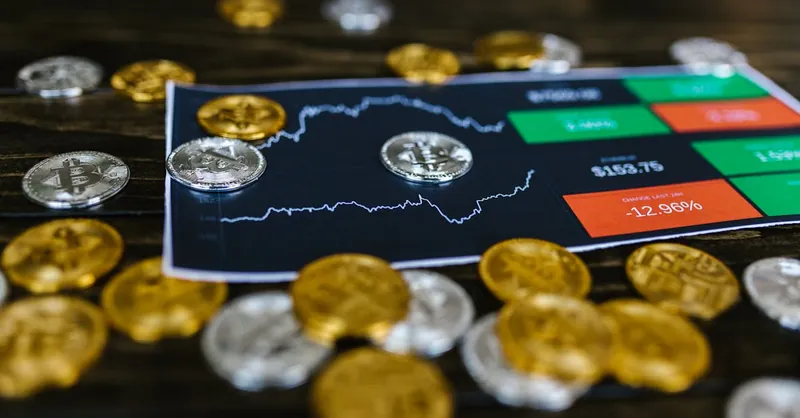
Image courtesy of RDNE Stock project
Key Features to Look for in Altcoin Exchanges
Choosing the best crypto exchange for altcoin trading goes beyond just checking the number of supported tokens. To trade effectively and securely, you need to evaluate a platform based on several critical features that impact your overall trading experience and potential profits. Understanding these key factors will empower you to select an exchange that meets your specific needs whether you’re focusing on frequent trading, long-term holding, or exploring niche altcoins.
1. Security
Security is paramount when dealing with cryptocurrencies. Look for exchanges that implement robust security measures such as two-factor authentication (2FA), cold wallet storage for the majority of funds, encryption protocols, and regular security audits. A history of transparent security practices and quick responses to vulnerabilities can further assure you that your assets are well protected.
2. Liquidity
High liquidity ensures that you can quickly buy or sell altcoins without causing significant price impact or facing wide spreads. Exchanges with deep liquidity pools offer tighter bid-ask spreads and faster order execution, essential for active trading and minimizing slippage, especially when dealing with lesser-known altcoins. Always check the daily trading volume of your preferred altcoins on the platform.
3. Trading Pairs
An ideal altcoin exchange should provide a diverse range of trading pairs, featuring popular base currencies like BTC, ETH, and USDT alongside a comprehensive selection of altcoins. Access to multiple trading pairs allows flexibility in trading strategies—whether you want to swap altcoins directly or move through stablecoins to mitigate volatility risks.
4. Fees
Trading fees can significantly affect your profitability over time. Evaluate the fee structure carefully—including maker and taker fees, withdrawal charges, and deposit fees. Some exchanges offer tiered fee discounts based on trading volume or token holdings, which can be advantageous for frequent traders. Also, consider the availability of zero-fee makers or reduced fees when using the platform’s native token.
5. User Interface and Experience
A smooth, intuitive user interface (UI) facilitates efficient trading and reduces errors—particularly important for newcomers. Responsive mobile apps, advanced charting tools, easy access to order books, and customizable layouts enhance the trading experience for all skill levels. Look for exchanges that provide a seamless balance between simplicity and powerful features.
6. Customer Support
Reliable and accessible customer support can save you time and stress during critical moments. Opt for exchanges that offer multiple channels such as live chat, email, and comprehensive help centers. Fast response times and knowledgeable support teams help resolve issues quickly, ensuring uninterrupted trading and better overall user satisfaction.
By prioritizing these key features—security, liquidity, trading pairs, fees, user interface, and customer support—you can confidently select altcoin exchanges that align with your trading preferences and protect your investments. This careful consideration will maximize your trading efficiency and open doors to more profitable altcoin opportunities.

Image courtesy of Jakub Zerdzicki
Top Centralized Exchanges for Altcoin Trading in 2024: In-depth Reviews
When it comes to trading altcoins efficiently and securely, centralized exchanges (CEXs) remain the go-to platforms for most investors and traders. Thanks to their high liquidity, advanced trading tools, and broad altcoin selections, centralized exchanges cater to both beginners and professional traders aiming to capitalize on market opportunities quickly. In 2024, the following platforms stand out as the best centralized exchanges for altcoin trading, combining reliability, innovation, and user-centric features tailored to the dynamic crypto landscape.
1. Binance
Binance continues to dominate the altcoin exchange market with the widest selection of altcoins and trading pairs worldwide. Its vast liquidity pools make it ideal for executing large trades with minimal slippage. Binance offers a comprehensive suite of tools such as spot trading, futures, margin trading, and staking, facilitating diverse trading strategies. The platform’s competitive fee structure—starting as low as 0.1% with discounts via Binance Coin (BNB)—and robust security protocols, including industry-leading SAFU fund protection, contribute to its global popularity.
- Strengths: Extensive altcoin variety, deep liquidity, low fees, user-friendly interface
- Suitable for: Active traders, altcoin explorers, and investors looking for innovative DeFi product integrations
2. Coinbase Pro
Known for its strong regulatory compliance and top-tier security, Coinbase Pro offers a more professional trading environment compared to its casual counterpart Coinbase. It features a simplified yet powerful interface optimized for reliable order execution, making it a favorite for U.S.-based users. While its altcoin selection is narrower than Binance, Coinbase Pro prioritizes quality over quantity, listing well-vetted and liquid tokens. Transparent fee tiers and insured custodial wallets add layers of trust, for traders who emphasize safety with regulated trading.
- Strengths: Regulatory compliance, institutional-grade security, intuitive interface
- Suitable for: Beginners stepping into altcoin trading, compliance-conscious investors
3. Kraken
Kraken is renowned for its strong emphasis on security and regulatory adherence, making it one of the longest-standing centralized exchanges globally. Kraken supports a broad portfolio of altcoins with good liquidity and offers margin trading with up to 5x leverage. The platform is also praised for its responsive customer support and rich educational resources, which help traders make informed decisions. Kraken’s fee structure is competitive and features maker-taker fee discounts, appealing to frequent traders.
- Strengths: Robust security, responsive support, diverse altcoin options
- Suitable for: Traders seeking security-first environments and comprehensive altcoin trading
4. KuCoin
If you're hunting for an exchange with an extensive catalog of lesser-known and emerging altcoins, KuCoin is a prime contender. KuCoin prides itself on listing hundreds of altcoins, often providing early access to tokens not yet available on larger exchanges. Its trading platform includes advanced order types and margin trading, coupled with a native token (KCS) that reduces fees. KuCoin’s decentralized trading features and peer-to-peer lending add further flexibility for seasoned altcoin traders.
- Strengths: Wide altcoin selection, innovative features, active token economy
- Suitable for: Speculative traders and altcoin hunters seeking early entry options
5. Bitfinex
Bitfinex targets professional traders with its rich toolkit including advanced charting, lending options, and high liquidity across many altcoins. While it has faced controversy in the past, Bitfinex has solidified its reputation by prioritizing compliance and offering margin trading with leverage up to 10x. The platform supports numerous fiat gateways and competitive fees, enhancing access for global users. Bitfinex’s customizable interface suits traders who desire granular control over their trading environment.
- Strengths: Advanced trading tools, high leverage options, strong liquidity
- Suitable for: Professional traders and those requiring sophisticated altcoin trading capabilities
By carefully choosing among these established centralized exchanges, altcoin traders in 2024 can leverage expansive coin listings, deep liquidity, and tailored features to optimize their trading potential. Whether your priority lies in security, variety, or advanced trading functions, these platforms represent the forefront of altcoin trading excellence.
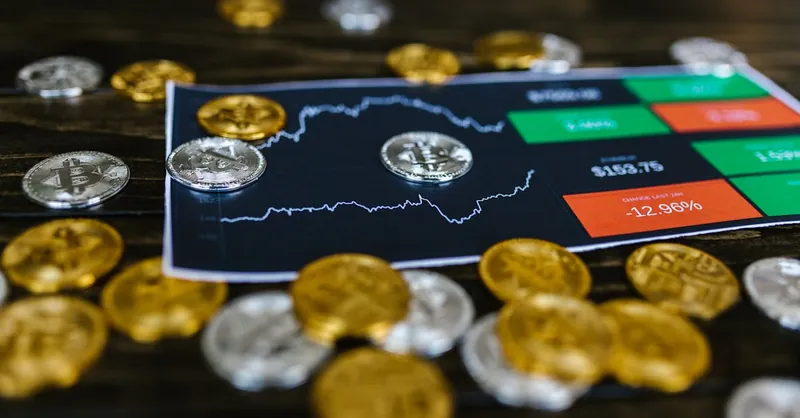
Image courtesy of RDNE Stock project
Leading Decentralized Exchanges (DEXs) for Altcoins: Pros, Cons, and How Platforms like Uniswap and SushiSwap Fit Into Your Strategy
As the crypto ecosystem continues to evolve, decentralized exchanges (DEXs) have become a cornerstone for altcoin trading, offering unique advantages compared to centralized platforms. Leading DEXs like Uniswap and SushiSwap leverage smart contract technology to facilitate peer-to-peer trading without intermediaries, putting users in direct control of their assets while enabling access to a vast array of emerging altcoins often unavailable on centralized exchanges.
Why Consider Decentralized Exchanges for Altcoin Trading?
Unlike centralized exchanges that require users to deposit funds to a platform-controlled wallet, DEXs allow users to trade directly from their own wallets. This non-custodial nature significantly enhances security by reducing risks related to hacks or mismanagement of funds. Moreover, DEXs usually list tokens at a much faster rate, often including innovative and experimental altcoins well before they hit centralized markets. For traders who prioritize privacy, control, and early access to tokens, DEXs can be indispensable.
However, DEXs come with trade-offs:
- Pros:
- Full custody of funds means users remain in control — reducing counterparty risk
- Access to a broader and more experimental altcoin marketplace
- Generally lower fees due to elimination of middlemen and no withdrawal limits
-
Permissionless listing of tokens fosters innovation and token diversity
-
Cons:
- Lower liquidity can lead to higher slippage, especially for large trade sizes
- User interface complexity and lack of customer support may challenge beginners
- Dependence on network fees (gas), particularly on Ethereum, can increase trading costs during congestion
- Absence of advanced order types (limit orders, stop-loss) on many DEX platforms
How Uniswap and SushiSwap Enhance Your Altcoin Trading Strategy
Uniswap, as the most widely used decentralized exchange, pioneered the automated market maker (AMM) model, enabling instant swapping of tokens directly from wallets through liquidity pools. Its simple yet powerful interface makes it a go-to choice for swapping altcoins with ease, especially smaller-cap tokens offered by project teams via liquidity provision.
On the other hand, SushiSwap builds upon Uniswap’s foundation, offering additional features like yield farming, staking, and community governance, creating a more interactive ecosystem that rewards liquidity providers and traders alike. SushiSwap’s broader DeFi toolkit can complement altcoin traders focused on both trading and earning passive income through liquidity mining.
Integrating DEXs like Uniswap and SushiSwap into your altcoin trading strategy allows you to:
- Discover and trade new altcoins early, often before they are listed on centralized exchanges.
- Maintain control over your funds and minimize exposure to centralized platform risks.
- Participate in DeFi opportunities such as liquidity provision, staking, and governance voting, which can enhance returns beyond simple trading.
- Reduce withdrawal and deposit delays, since assets remain in your wallet throughout the trading process.
In sum, while DEXs may not yet fully replace the speed and liquidity of centralized exchanges for large-volume or highly active trading, they serve as vital complementary platforms—especially for investors seeking diversity, decentralization, and deeper engagement with the altcoin ecosystem. Balancing trading between centralized exchanges and top DEXs like Uniswap and SushiSwap optimizes both flexibility and security within your comprehensive altcoin strategy.
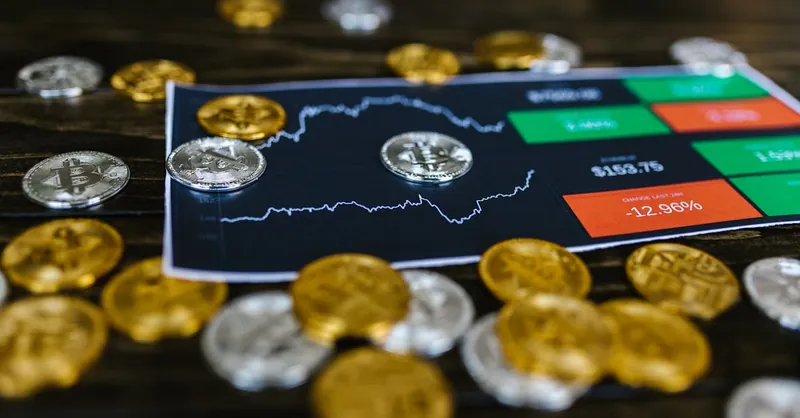
Image courtesy of RDNE Stock project
Comparing Fees and Trading Costs: Deposit, Withdrawal, Trading Fees, and How They Impact Your Profitability
When selecting a crypto exchange for altcoin trading, understanding the full fee structure is crucial because these costs directly affect your trading profitability. Exchanges typically charge fees across three main areas: deposit, withdrawal, and trading. Each of these costs varies widely among centralized and decentralized platforms, so being aware of their nuances helps you make smarter choices that preserve your capital and optimize returns.
Deposit and Withdrawal Fees
-
Deposit Fees: Most centralized exchanges offer free cryptocurrency deposits but may charge fees for fiat deposits via bank transfer, credit card, or third-party payment providers. These fees can range from 0% to 5% or more, depending on the method and region. DEXs usually do not have deposit fees since you trade directly from your wallet.
-
Withdrawal Fees: Withdrawal fees on centralized exchanges are often a fixed amount and depend on the asset type (e.g., Bitcoin withdrawals cost more gas than stablecoins). Some exchanges charge dynamic fees based on network congestion, while others set flat fees. High withdrawal fees can significantly eat into profits, especially for small or frequent transactions. In contrast, DEX users avoid platform withdrawal fees but must pay network gas fees, which fluctuate with blockchain usage.
Trading Fees: Maker and Taker Costs
Most exchanges categorize trading fees into two types:
-
Maker Fees apply when you add liquidity to the order book by placing a limit order below the ticker price for buys or above for sells. Makers typically pay lower fees as they provide liquidity to the market.
-
Taker Fees are charged when you execute orders that remove liquidity (market orders or limit orders that match immediately), usually at a higher rate than maker fees.
For example, Binance charges a base fee of 0.1% per trade, with makers sometimes paying as low as 0.075% after volume discounts, while Coinbase Pro’s fees start at 0.5% and reduce with higher monthly trading volumes.
Additional Fee Considerations
- Fee Discounts: Many exchanges incentivize usage of their native tokens (e.g., Binance Coin or KuCoin Shares) to reduce trading fees, sometimes by as much as 25-50%.
- Volume-Based Tiers: Frequent traders can benefit from tiered fee schedules where higher monthly trading volumes unlock lower fees.
- Slippage and Spread: Beyond explicit fees, consider slippage costs and bid-ask spreads, which can be significant for altcoins with lower liquidity.
- Network Gas Fees on DEXs: On Ethereum-based DEXs like Uniswap, network fees can add substantial costs during peak times and impact short-term trading strategies.
How Fee Structures Impact Your Profitability
Even seemingly small fees accumulate over multiple trades and withdrawals, potentially eroding your gains—especially when trading altcoins with tight margins or speculative positions. Careful comparison of total cost of trading, beyond just nominal fee percentages, allows you to:
- Optimize entry and exit points by minimizing unnecessary fee layers.
- Choose exchanges that align with your trading frequency and volume.
- Leverage fee discounts and token-based incentives to lower costs.
- Balance costs versus benefits when trading on DEXs versus centralized exchanges.
Ultimately, the best altcoin exchanges in 2024 are those that offer not only competitive and transparent fee structures but also high liquidity and usability, ensuring your trading strategy remains both effective and cost-efficient.
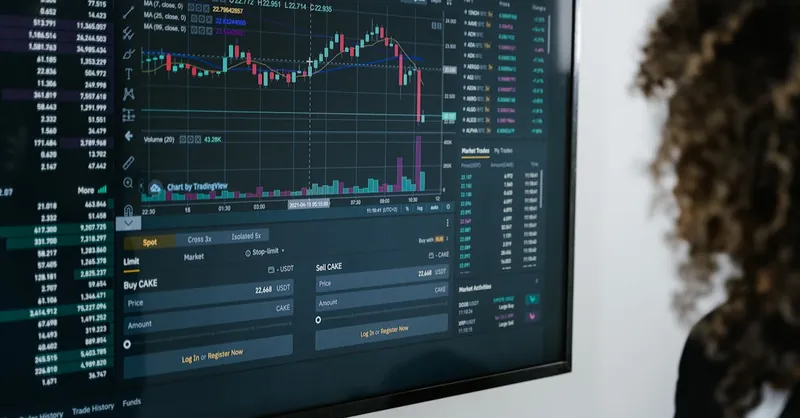
Image courtesy of Tima Miroshnichenko
Security Protocols and Trustworthiness: What to Check Before Depositing Funds and Protecting Your Investments
When choosing a crypto exchange for altcoin trading, security and trustworthiness are non-negotiable pillars that safeguard your investment and peace of mind. Before depositing funds, it’s critical to verify whether the exchange employs comprehensive security protocols that protect against hacks, fraud, and unauthorized access. Key security features and reputational factors to scrutinize include:
-
Cold Storage of Funds: The safest exchanges store the majority of user funds in offline cold wallets disconnected from internet access, significantly reducing the risk of theft. Platforms relying heavily on hot wallets or without clear cold-storage policies should raise warning flags.
-
Two-Factor Authentication (2FA): Mandatory support for 2FA via apps like Google Authenticator or hardware keys adds an essential security layer, helping prevent unauthorized logins even if passwords are compromised.
-
Encryption and Secure Socket Layer (SSL): Examine if the exchange uses strong encryption protocols (e.g., SSL certificates) to protect data transmissions, ensuring that your personal and financial information cannot be intercepted during login or transactions.
-
Regular Security Audits and Bug Bounty Programs: Trusted platforms often conduct third-party security audits and run bug bounty programs to proactively identify vulnerabilities, demonstrating transparency and commitment to safeguarding user assets.
-
Insurance Funds and SAFU (Secure Asset Fund for Users): Some leading exchanges maintain insurance reserves or SAFU funds designed to cover user losses in case of breaches, providing an extra layer of financial protection.
-
Reputation and Regulatory Compliance: Investigate the exchange’s history for past security incidents, transparency in handling breaches, and adherence to relevant regulations. Platforms with solid regulatory licenses typically adhere to stringent operational and security standards that benefit users.
-
Withdrawal Whitelists and Anti-Phishing Measures: Features like withdrawal address whitelists and customizable anti-phishing codes help prevent unauthorized fund transfers from your account.
Before transferring any fiat or cryptocurrencies, verifying these security protocols reduces the risk of losing funds due to platform vulnerabilities or malpractice. Prioritize exchanges with proven, transparent security measures and a trustworthy track record—this due diligence is fundamental to protecting your investments in the volatile altcoin market. Remember, no matter how attractive an exchange’s features or altcoin selections may be, security must always come first in your decision-making process.
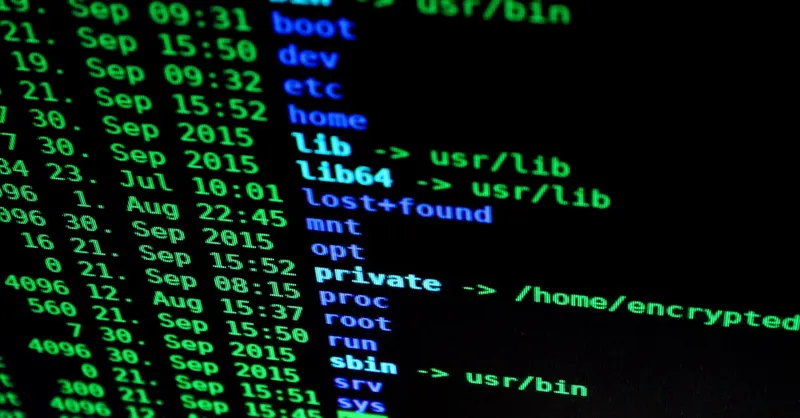
Image courtesy of Pixabay
Altcoin Selection and Market Access: Evaluating Token Variety, Listing Speed, and Platform Innovation
A defining factor in choosing the best crypto exchange for altcoin trading lies in its altcoin selection and market accessibility. Traders seeking to diversify their portfolios or capitalize on emerging trends need platforms that not only offer a wide variety of tokens but also provide rapid listings and innovative features that foster market dynamism.
Extensive Token Variety
Exchanges that support an expansive range of altcoins empower traders to explore numerous sectors and projects within the crypto ecosystem—from DeFi protocols and NFTs to gaming tokens and layer-2 solutions. A broader coin catalog enhances investment opportunities, enabling both long-tail speculative plays on newly launched projects and trades on more established altcoins with proven liquidity. When assessing exchanges, prioritize those with:
- Support for hundreds or even thousands of altcoins across multiple categories
- Diverse trading pairs involving popular base currencies like BTC, ETH, and stablecoins (USDT, USDC)
- Inclusion of emerging tokens that align with current market trends
Listing Speed and Access to New Tokens
The speed at which an exchange lists new altcoins can significantly influence a trader’s ability to gain early exposure and benefit from initial price movements. Platforms with streamlined but rigorous listing procedures tend to attract innovative projects quickly, granting users access to novel opportunities before broader market recognition. Fast and reliable listing processes benefit altcoin traders by:
- Enabling earlier entry points on high-potential tokens
- Keeping portfolios adaptable to evolving market conditions
- Providing access to tokens that might later become mainstream or listed on larger exchanges
Platform Innovation and Market Accessibility
Leading crypto exchanges continuously innovate to improve market access and user experience, often integrating cutting-edge features that attract altcoin traders. Innovations include:
- Cross-chain trading capabilities that allow swapping altcoins from different blockchain ecosystems without complicated transfers
- Launchpads and initial exchange offerings (IEOs) providing participation in token sales directly on the exchange
- Liquidity aggregation and routing to optimize trade execution with minimal slippage
- Decentralized finance (DeFi) integrations that blend traditional order book trading with liquidity pool swaps and staking options
By selecting exchanges that excel in token variety, expedite listing speed, and embrace platform innovation, traders position themselves at the forefront of altcoin markets. Such access contributes directly to capitalizing on high-growth tokens while navigating a rapidly changing crypto landscape with enhanced agility and confidence.
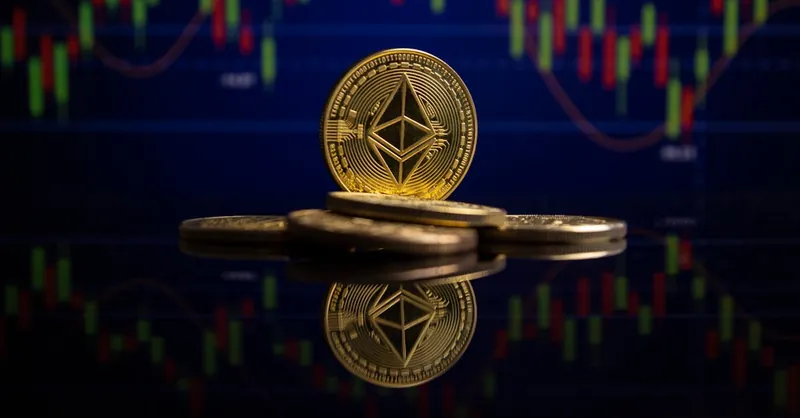
Image courtesy of Bastian Riccardi
Mobile Trading and Advanced Tools: Importance of Mobile Apps, APIs, and Trading Bots for Power Traders
In today’s fast-paced crypto markets, mobile trading has become a crucial feature for altcoin investors who need to stay connected and execute trades on the go. Top crypto exchanges now offer robust mobile applications that extend nearly all desktop functionalities, including real-time market data, advanced charting, order management, and secure wallet access. With these mobile apps, traders can monitor volatile altcoin prices, respond instantly to market movements, and manage positions flexibly from anywhere—whether commuting, traveling, or simply away from their main trading setups. For both casual traders and professionals, a well-designed mobile app supports timely decision-making, which is often the difference between profit and loss in highly dynamic altcoin markets.
Beyond mobile apps, application programming interfaces (APIs) and automated trading bots have become indispensable tools for power traders seeking to optimize their altcoin strategies. APIs enable traders and developers to integrate exchange data and functions directly into custom-built software or third-party platforms, facilitating rapid order execution, real-time data feeds, and portfolio automation. By leveraging APIs, traders can achieve high-frequency trading, algorithmic strategies, and advanced order types not always available via standard user interfaces.
Similarly, trading bots harness APIs to automate repetitive tasks such as executing limit orders, stop-losses, or grid trading, allowing traders to capitalize on market inefficiencies 24/7 without manual intervention. Sophisticated bot platforms also support technical indicators, backtesting, and risk management settings, empowering altcoin traders to implement complex strategies with precision and discipline.
When selecting an exchange for altcoin trading, prioritizing platforms that combine intuitive mobile apps with comprehensive API access and strong third-party bot compatibility can amplify your trading efficiency, improve speed, and reduce emotional decision-making. These advanced tools deliver a technological edge, making them essential for serious traders aiming to stay competitive in the highly fragmented and fast-evolving altcoin landscape of 2024.
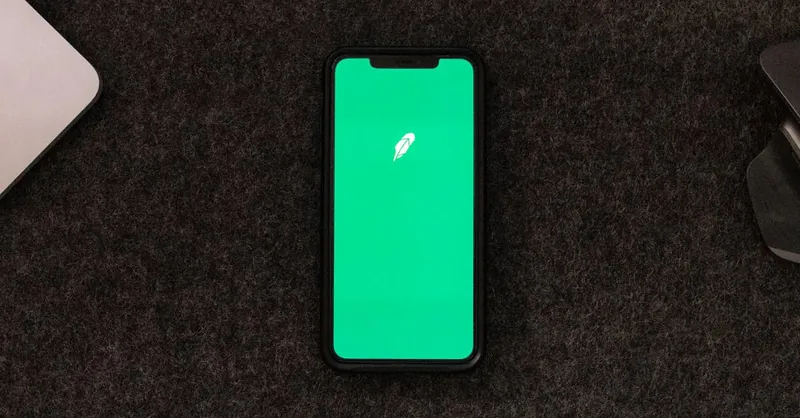
Image courtesy of Andrew Neel
How to Choose the Best Exchange Based on Your Trading Experience and Goals: Beginner to Expert Guidance
Selecting the perfect crypto exchange for altcoin trading depends greatly on your trading experience level, individual goals, and risk tolerance. Understanding your needs—from ease of use to advanced functionality—ensures you pick a platform that not only matches your expertise but also empowers you to trade successfully and confidently.
For Beginners: Prioritize Simplicity and Security
If you’re new to altcoin trading, focus on exchanges that provide a user-friendly interface, educational resources, and strong security measures. Beginner-friendly platforms like Coinbase Pro or Kraken offer straightforward navigation, well-regulated environments, and transparent fee structures to help you build confidence without overwhelming complexity. Features to look for include:
- Intuitive trading dashboards with simple buy/sell options
- Responsive customer support and extensive learning materials
- Lower trading fees with clear, easy-to-understand schedules
- Strong security protocols including mandatory 2FA and insured custodial wallets
Beginners should avoid highly technical platforms with steep learning curves or exchanges primarily catering to professional traders until they gain experience.
For Intermediate Traders: Balance Features and Flexibility
Intermediate traders aiming to expand their portfolio or increase their trading frequency should choose exchanges that blend usability with advanced trading features and wider altcoin selections. Platforms like Binance and KuCoin suit this stage well, offering:
- Access to hundreds of altcoins with diverse trading pairs
- Advanced order types (limit, stop-loss, margin trading)
- Mobile apps and API compatibility for on-the-go or automated trading
- Fee discounts using native tokens or volume-based tiers
This balance supports flexible strategy development, allowing traders to experiment with margin trading, staking, and DeFi integrations without sacrificing security or ease of use.
For Expert Traders: Seek Advanced Tools and Deep Liquidity
Expert traders require exchanges equipped with high liquidity, sophisticated trading tools, and customizable interfaces to execute complex strategies efficiently. Platforms such as Bitfinex or advanced features on Binance offer:
- High-leverage margin and futures trading
- Extensive charting options and technical analysis indicators
- API-driven algorithmic trading and bot integration
- Robust order book depth critical for large-volume trades
Security remains paramount, but the priority shifts towards speed, precision, and low-latency execution. Experts should also consider exchanges with comprehensive reporting and risk management tools to optimize portfolio performance.
By aligning your choice of crypto exchange with your trading experience and goals—whether beginner, intermediate, or expert—you ensure a smooth and rewarding altcoin trading journey. Always reevaluate your platform as your skills evolve and market conditions change, ensuring continued access to the best tools, security, and altcoin opportunities.
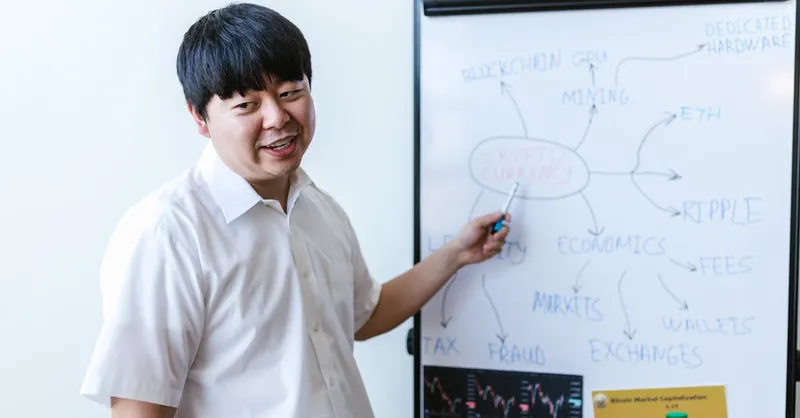
Image courtesy of RDNE Stock project
Tips and Best Practices for Safe and Profitable Altcoin Trading: Managing Risks, Avoiding Scams, and Staying Updated
Navigating the dynamic altcoin market requires more than just choosing the right exchange — it demands disciplined risk management, vigilance against scams, and continuous market awareness to protect your capital and maximize profits. Here are essential tips and best practices to trade altcoins safely and profitably in 2024:
1. Implement Robust Risk Management Strategies
Altcoin markets are notoriously volatile, so applying risk management tactics is crucial:
- Only invest what you can afford to lose. Altcoins carry higher risk compared to established cryptocurrencies like Bitcoin or Ethereum.
- Use stop-loss orders to limit potential losses and take-profit levels to secure gains systematically.
- Diversify your altcoin portfolio to reduce exposure to any single token’s downturn.
- Avoid excessive leverage, especially on margin platforms, to prevent margin calls and forced liquidations during sudden market swings.
2. Diligently Avoid Scams and Fraudulent Projects
The altcoin space is ripe with innovative opportunities but also a breeding ground for scams and pump-and-dump schemes. Protect yourself by:
- Researching thoroughly using multiple credible sources before investing in any new altcoin.
- Verifying project legitimacy through transparent teams, active development, audited smart contracts, and real-world use cases.
- Steering clear of exchanges or platforms with poor reputations, unverified listings, or suspicious reporting.
- Avoiding unsolicited investment offers or promotions promising guaranteed high returns.
3. Stay Informed with Real-Time Market Data and News
Active altcoin trading demands up-to-the-minute information to capitalize on market trends:
- Follow reputable cryptocurrency news outlets, official project channels, and community forums to track developments and regulatory changes.
- Use exchange notifications, price alerts, and social media monitoring tools to respond promptly to market-moving events.
- Continuously educate yourself on emerging technologies like DeFi, NFTs, and layer-2 solutions — all of which can drive new altcoin opportunities.
4. Maintain Strong Account Security Hygiene
Given the frequency of cyberattacks in crypto, safeguard your accounts by:
- Enabling two-factor authentication (2FA) on all exchange and wallet accounts.
- Regularly updating passwords, using unique, complex combinations, and avoiding password reuse.
- Utilizing hardware wallets when possible for long-term altcoin storage, especially for tokens listed on fewer exchanges.
- Being cautious with public Wi-Fi, phishing emails, and suspicious links that might compromise your credentials.
By incorporating these best practices—effective risk management, vigilance against scams, staying updated with market trends, and proactive security measures—you can navigate altcoin trading with greater confidence and position yourself for safer, more profitable outcomes. Consistency and discipline in executing these steps empower both novice and veteran traders to thrive amid the fast-evolving altcoin landscape.

Image courtesy of Jakub Zerdzicki
